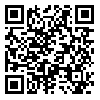Volume 3, Issue 2 (May 2016)
Avicenna J Neuro Psycho Physiology 2016, 3(2): 48-53 |
Back to browse issues page
Download citation:
BibTeX | RIS | EndNote | Medlars | ProCite | Reference Manager | RefWorks
Send citation to:



BibTeX | RIS | EndNote | Medlars | ProCite | Reference Manager | RefWorks
Send citation to:
Kimiyaee Asadi F, Jadidian A A, Aslani J. The Effect of Relaxation and Positive Self-Talk on Symptoms of Premenstrual Syndrome. Avicenna J Neuro Psycho Physiology 2016; 3 (2) :48-53
URL: http://ajnpp.umsha.ac.ir/article-1-73-en.html
URL: http://ajnpp.umsha.ac.ir/article-1-73-en.html
1- M.Sc Student, Educational Science, Islamic Azad University, Hamedan Branch, Hamedan, IR Iran , smiauhphd.sm@gmail.com
2- Assistant Professor, Islamic Azad University, Hamedan Branch, Hamedan, IR Iran
2- Assistant Professor, Islamic Azad University, Hamedan Branch, Hamedan, IR Iran
Abstract: (3473 Views)
Article Type: Research Article |
Subject:
Special
Received: 2016/06/22 | Accepted: 2016/09/12 | Published: 2016/10/3
Received: 2016/06/22 | Accepted: 2016/09/12 | Published: 2016/10/3
Send email to the article author
| Rights and permissions | |
 |
This work is licensed under a Creative Commons Attribution-NonCommercial 4.0 International License. |






